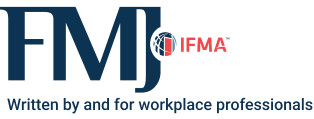Facility Managers
The unsung heroes of return-to-office

As businesses worldwide continue to overcome the hurdles of implementing return-to-office normalcy, the role of the facility manager is more important than ever to ensure a smooth and satisfying transition for employees. While FMs have long been tasked with creating a safe, productive and enjoyable working space across industries, today’s workforce has a larger set of expectations, with hygiene and sustainability at the top of the list. As a result, FMs have become the unsung heroes as they provide employees with healthy, clean, sustainable workplace environments.
Navigating return-to-office trends
To meet rising expectations in workplace cleanliness, employee health and sustainable business practices, FMs first need to understand variable return-to-office trends. While most facilities – from restaurants to airports – are back to pre-pandemic levels, employees’ return to the office still poses some uncertainty. More employers are enforcing return-to-work mandates, but these are often on a hybrid basis and only require a few in-person days per week, creating unpredictability around which days will see the highest attendance. This has introduced a major challenge for FMs as they predict cleaning and hygiene product inventory needs.
Today’s labor volatility adds another layer to the obstacles that confront office managers. According to the U.S. Chamber of Commerce, there are 9.9 million job openings in the U.S., but only 5.8 million unemployed workers. With not enough workers to fill job openings, especially in the professional cleaning space, current staff are likely to experience burnout as they try to accomplish the work of many. On top of this, uncertainty in office visitor traffic patterns introduces fluctuating busy days in the office, making it difficult to predict necessary staffing models and provide a consistent rate of cleaning.
Another trend in recent years shows companies have reprioritized their office space needs amid the prominence of remote work. Nearly half of companies in the U.S. planned to downsize their office space in response to the pandemic. As a result, hot-desking and collaborative workspace models – and, by default, tighter quarters and increased touchpoints – were introduced, posing new FM challenges. While a shared workspace environment is designed for collaboration, it can be difficult to maintain high levels of hygiene. After all, germs are more likely to spread with more people in a shared room.
Meeting higher expectations
As FMs navigate accommodating scattered office inhabitants, there is one critical factor that drives their day-to-day routine: the bar for hygiene is rising. The pandemic has left the public hyperaware of their surroundings, according to an Essity report. One in two employees have higher hygiene expectations for their workplace. For example, the majority (nearly 75 percent) of employees expect their employer to provide extra cleaning rounds to ensure hygiene. With this in mind, every office FM needs to prioritize hygiene to meet and exceed employees’ high expectations.
As a testament to how critical hygiene in the workplace is, it can even impact the personal relationship between an employer and employee. Three in four office workers believe poor office hygiene indicates the employer does not care about them. When retaining top talent is as challenging as it is today, any negative sentiment toward an employer can make or break an employee’s decision to stay with a company.
With a greater understanding of employees’ expectations, FMs can provide them with the best workplace experience. According to an Essity survey, 73 percent of public restroom attendees use paper hand towels to avoid touching different surfaces in public restrooms. And what many FMs do not recognize is that nearly 70 percent of users prefer paper hand towels instead of air dryers. With insights like these, facility professionals are positioned to meet users’ unexpected preferences.
Sustainability is another top priority for office employees. During the pandemic, many companies deprioritized sustainability as they faced a challenging economic time, but now they have the bandwidth and resources to reprioritize commitments. Employees, therefore, are more mindful of sustainability in the office. Most office employees have higher demands on companies’ sustainability efforts (Essity Essentials Initiative 2021 Global Report), and as workers return to the office, 83 percent are looking to see a more environmentally friendly space.
So, how can FMs meet office employees’ heightened expectations?
Make hygiene part of office culture
Office employees expect their workplace to maintain a culture of safety and quality, and hygiene solutions play an essential role in helping FMs meet these needs and establish a clean environment. To do so, there are tactics for making hygiene obvious and easier for employees to make good hygiene decisions.
Signage goes a long way. If reminders of good hygiene practices (e.g., proper hand-washing routines) are front and center around the office, then employees are far more likely to recognize cleaning efforts and follow guidelines. Eye-catching reminders should be placed in office common areas, including entrances and exits, elevators, bathrooms, breakrooms and staff lounges. It may sound simple, but constant reinforcement is essential to instill a hygienic culture.
Another important aspect of proving an office’s commitment to hygiene is ensuring employees have proper access to soap, sanitizer and towel dispensers, along with ensuring they are always full of the products. Employees and visitors will judge offices based on the presence and types of hygiene products available. FMs can improve the reputation of their office buildings by addressing these concerns.
Lean into technology
As FMs attempt to navigate variations in office attendance due to a mix of return-to-office policies and rising hygiene expectations, the adoption of technology can enable data-driven cleaning strategies that eliminate daily guesswork. Data-driven cleaning technology can grant FMs the visibility and insights needed to adapt their cleaning and restocking rounds to secure the correct level of service.
Facilities can now leverage sensors in dispensers to gather real-time usage data, which then informs cleaning staff when and where there are refilling needs in a specific location within a facility. Data-driven technology also helps monitor visitor traffic to make staffing more efficient and optimize cleaning frequency and level, all while preventing the spread of germs and infectious diseases.
Inspire sustainability in everything
Lastly, sustainable office products meet employees’ heightened demand for environmentally friendly workspaces, and this is especially true for hygiene products. In the past, sustainability and hygiene were not always considered analogous, but today, hygiene products and packaging can help FMs minimize waste and do more with less.
Facilities can adapt to the increasing pressure by developing a sustainability plan. This includes running a sustainability audit, which is a complete look into current facility practices through the lens of environmental impact. By conducting an audit, FMs can reevaluate the products, appliances and technologies they utilize to ensure they are optimized and eco-friendly.
From soap ingredients to paper hand towels to sustainable packaging, there are readily available options across the board, including biodegradable hand soap – using ingredients from renewable sources such as vegetable origins – or paper hand towel dispensers that compact the paper towels to fit more product in each dispenser and will only dispense what the user needs, helping to reduce waste by 50 percent.
From the reception and office space to the restrooms and breakrooms, there are so many touchpoints in an office facility that, if unmaintained, can be detrimental to the reputation of the facility. With the help of various hygienic and sustainable solutions, facility managers can exceed employees’ high expectations.

Rachel Olsavicky is the regional marketing manager for Commercial & Public Interest at Tork, Essity’s professional hygiene business. She oversees end-customer marketing plans in these segments for the Tork brand in North America. With more than 10 years of experience in marketing, Olsavicky specializes in market research, product management, business development and strategic planning. Prior to joining Essity, she held positions in product marketing at La Colombe Coffee Roasters and Mars Drinks. Olsavicky holds an MBA focused on marketing management from Syracuse University’s Martin J. Whitman School of Management.
Read more on Leadership & Strategy , Communication and Workplace
Explore All FMJ Topics








